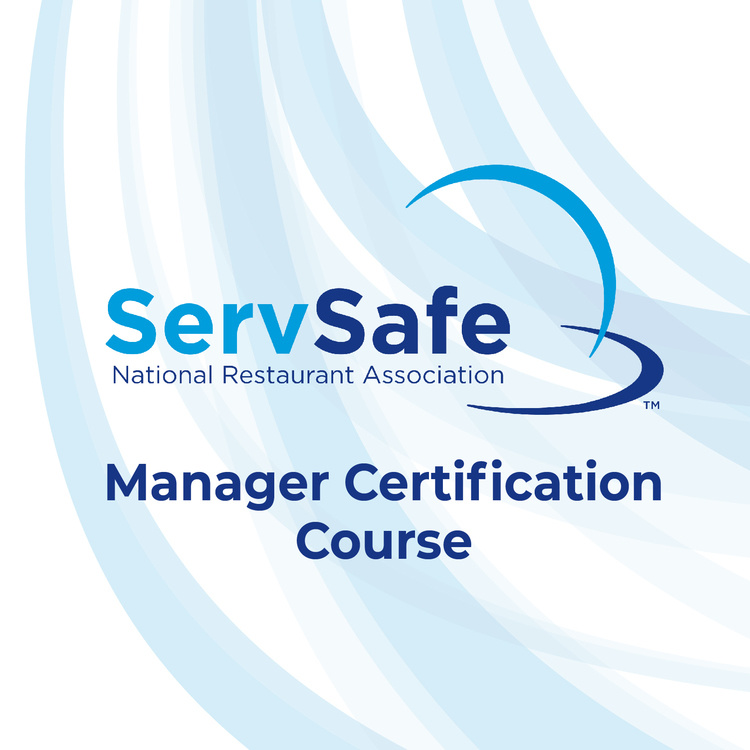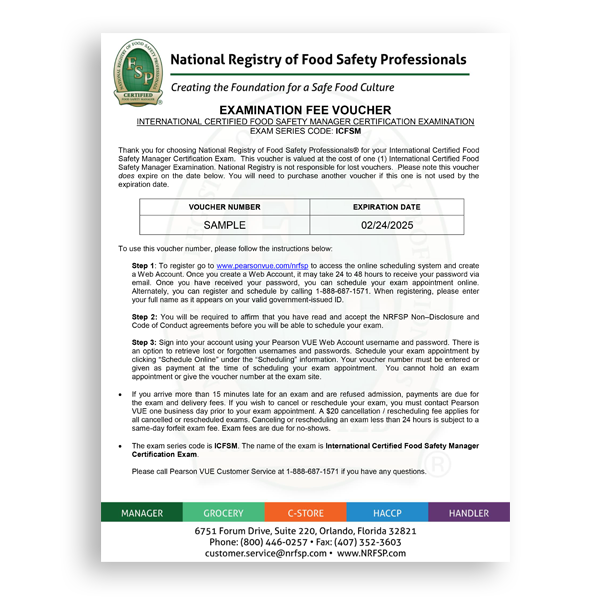Exactly How a ServSafe Manager Certification Raises Management in Foodservice Procedures
Exactly How a ServSafe Manager Certification Raises Management in Foodservice Procedures
Blog Article
Specialist Training for Food Supervisor Qualification Made Simple
The value of food manager qualification can not be downplayed, particularly in a period where food safety is paramount. Expert training programs have actually developed to enhance the accreditation process, providing important understanding and useful skills necessary for reliable food management.
Importance of Food Supervisor Accreditation
The value of Food Supervisor Qualification can not be overstated in today's food service sector. This accreditation represents that food supervisors possess the necessary knowledge and abilities to guarantee food safety and security, maintain health standards, and promote regulatory conformity. In a period where foodborne ailments can have serious consequences, the function of a certified food supervisor comes to be critical in guarding public health and wellness.
Food Manager Qualification not just equips individuals with the know-how to reduce and identify food safety and security threats yet likewise enhances the integrity of the establishment. Consumers are significantly critical; they seek guarantee that their dining experience is sanitary and risk-free. Qualification functions as a mark of professionalism and reliability that can draw in and preserve consumers.
In addition, local jurisdictions and lots of states mandate that establishments utilize certified food supervisors to follow wellness laws. This demand highlights the qualification's significance in avoiding possible legal ramifications and penalties. Additionally, a licensed food supervisor can lead staff training, cultivating a culture of safety and responsibility within the work environment. Spending in Food Supervisor Certification is an investment in top quality, safety, and the total success of food service procedures.
Summary of Specialist Training Programs
Expert training programs for food supervisor qualification are created to supply detailed education and learning on food security techniques, governing conformity, and threat management. These programs aim to gear up food service specialists with the expertise and abilities necessary to make sure risk-free food handling and preparation in various settings, including dining establishments, providing services, and institutional food procedures.
Commonly, specialist training programs incorporate both academic and practical elements, allowing individuals to engage with real-world scenarios. The curriculum usually includes important subjects such as foodborne illnesses, correct food storage strategies, sanitation procedures, and staff member training techniques. Furthermore, these programs are frequently upgraded to line up with the current sector criteria and laws, making certain that participants receive pertinent and existing info.
Lots of programs use flexible shipment approaches, including in-person courses, on the internet training courses, or a hybrid technique, accommodating different learning preferences and routines. Upon effective completion, individuals generally receive certification, which is often identified by regional wellness departments and governing companies, boosting their job leads within the food solution sector. On the whole, specialist training programs play a crucial function in cultivating a culture of food security and conformity amongst food supervisors and personnel.
Trick Subjects Covered in Training
Food read the article safety and security is an important emphasis in food manager qualification training, incorporating a selection of vital topics that ensure participants are well-equipped to manage food safely. Among the key topics covered is the value of personal hygiene, which consists of appropriate handwashing strategies and the significance of keeping tidiness in food preparation locations.
Furthermore, the training addresses foodborne health problems, detailing the numerous virus that can contaminate food and the signs associated with these ailments. Individuals learn more about the conditions that promote bacterial development, which is essential for preventing break outs.
Temperature level control is one more essential subject, stressing the safe cooking, cooling, and storage temperatures needed to lessen risks. The training additionally covers cross-contamination avoidance methods, ensuring that raw and prepared foods are dealt with properly to stay clear of harmful communications.
Moreover, food safety and security policies and standards, such as those stated by the FDA and regional health and wellness departments, are reviewed to provide a detailed understanding of compliance needs. Finally, efficient bug control measures are examined to secure food establishments from infestations that can compromise security. Collectively, these subjects lay a solid structure for risk-free food administration methods.
Benefits of Professional Training
How can experienced training boost food safety and Get the facts security methods within a facility? Expert training gears up food supervisors with detailed knowledge of food security regulations, market standards, and ideal methods. This fundamental understanding is crucial for keeping a safe and tidy food prep work setting, inevitably decreasing the threat of foodborne diseases.
Furthermore, expert training cultivates an aggressive approach to food safety and security by stressing preventive procedures and threat analysis. Managers trained by industry experts can effectively determine prospective risks and carry out strategies to reduce them. This not just secures customers yet also enhances the establishment's reputation and dependability.
In addition, expert training urges a culture of continuous renovation. Food supervisors who participate in recurring education and learning are much better prepared to adapt to brand-new guidelines and trends in the food solution market. This adaptability can cause boosted functional performance and expense savings.


Steps to Accomplish Certification
Attaining qualification in food monitoring calls for an organized strategy that incorporates numerous crucial actions. First, individuals have to pick an approved training program that supplies extensive coursework in food security, monitoring, and cleanliness principles. These programs commonly offer useful sources, consisting of research materials and practice examinations
Following, candidates must actively engage in the training sessions, whether in-person or online, to boost their understanding of vital topics such as foodborne illnesses, individual health, and proper food storage space techniques. Participation in discussions and functional exercises can even more reinforce understanding.

When sufficiently ready, prospects can set up and take the test. Effective completion normally needs achieving a particular passing score, which shows a detailed understanding of food security requirements.
Final Thought
In summary, professional training for food supervisor certification plays a crucial duty in making sure go food security and conformity with regulatory standards. Eventually, attaining food manager qualification with expert training not just elevates specific proficiencies yet likewise cultivates a much safer food environment for all.

Expert training equips food managers with comprehensive understanding of food safety and security regulations, market criteria, and ideal methods.In recap, professional training for food manager accreditation plays a vital duty in making sure food security and compliance with regulative standards (ServSafe Manager). Eventually, achieving food manager qualification via professional training not only boosts private proficiencies but also cultivates a much safer food atmosphere for all
Report this page